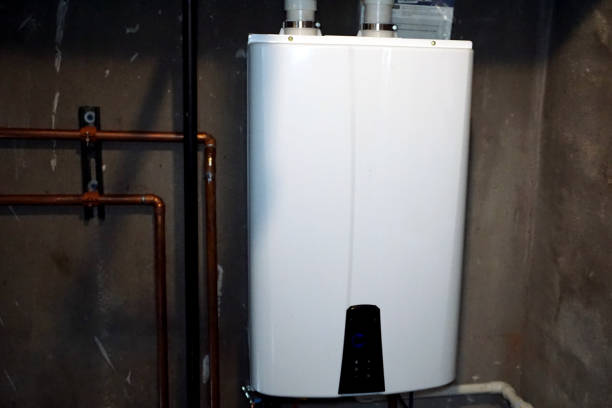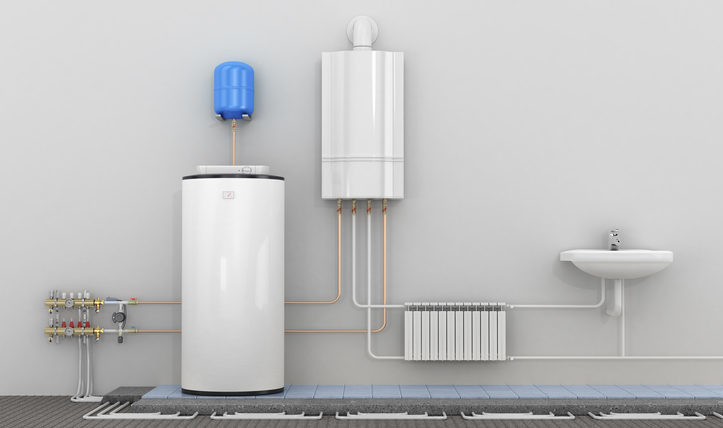Just how do you feel in regards to Unveiling the Hot Trend: The Benefits of Tankless Water?

In a globe where comfort and effectiveness reign supreme, it's not a surprise that house owners are regularly in search of smarter ways to manage their home's power consumption and convenience. One innovation that has actually continuously obtained appeal is the tankless hot water heater. However exactly what makes these systems stand apart from the conventional tank-based designs the majority of us matured with? Allow's dive in and discover the benefits of tankless water heaters, helping you decide if it's time to make the button in your house.
Intro
Photo this: you step into the shower after a lengthy day, anticipating a comforting waterfall of hot water, just to be greeted by icy beads due to the fact that the last person used all of it up. Noise acquainted? Typical water heaters save a set amount of warm water, indicating you're at the grace of that storage tank's supply. Tankless systems, on the other hand, heat water as needed. No more running out mid-shower, say goodbye to wrestling with routines just to make certain hot water is offered.
Understanding Tankless Hot Water Heater
What Are Tankless Water Heaters?
Tankless water heaters, occasionally known as on-demand or immediate water heaters, supply warm water only as it's needed. Instead of storing gallons of pre-heated water, these devices kick right into action the minute you activate the tap. Water goes through a warmth exchanger, warming up in real-time, meaning you obtain an undisturbed circulation of hot water without the demand for a large container sitting lazily by.
Just how Do They Vary from Standard Systems?
Conventional heaters hold a storage tank of hot water, using energy to maintain that tank at a consistent temperature. Tankless devices eliminate the standing supply, reducing lost power and the cumbersome footprint of a big cyndrical tube. Essentially, you're updating from a "accumulation" state of mind to a "made-to-order" technique.
Common Kinds Of Tankless Units
Tankless hot water heater usually can be found in 2 ranges: gas and electric. Gas designs often tend to provide greater flow rates, perfect for bigger homes, while electrical designs commonly offer smaller sized homes and are normally simpler to mount. In addition, some systems are created for point-of-use (serving one fixture) while others can manage the whole home's hot water demands.
Key Benefits of Tankless Water Heaters
Energy Performance and Cost Financial Savings
No more heating up a giant container's worth of water and keeping it toasty all the time. Tankless heaters reduce standby power losses, which can decrease energy costs. While the initial cost might be greater, the long-term savings typically validate the investment.
3. Space-Saving Layout
If your home is short on storage, removing the bulky container frees up valuable space. Tankless devices are small and can frequently be installed on walls, stashed in edges, or installed in tight energy wardrobes without having all to oneself the entire area.
4. Longer Lifespan
A properly maintained tankless water heater can outlast its tank-based relative. Traditional containers may last 10-15 years, while tankless designs can keep downing along for twenty years or more, making them a solid financial investment over time.
1. Countless Warm Water Supply
Ever before needed to schedule showers so everybody obtains their fair share of hot water? With tankless, that ends up being a distant memory. As long as the heating system's flow capacity isn't exceeded, you can take back-to-back showers without turning into a popsicle.
5. Improved Water High Quality
Keeping water in a tank can occasionally lead to sediment buildup or a somewhat "off" preference. With tankless systems, fresh water is heated up instantly, minimizing the opportunities of debris build-up and potentially using cleaner-tasting water.
Considerations Before Changing
Though the benefits are engaging, it's a good idea to take into consideration a few factors prior to totally committing.
Examining Your Home's Water Use Patterns
If your house simultaneously utilizes multiple components with high hot water need, see to it the device's flow rate meets your requirements. Recognizing your usage patterns assists you pick the ideal dimension and type of tankless heating system.
Upkeep and Treatment Tips
Tankless systems are fairly low upkeep, yet they aren't set-it-and-forget-it home appliances.
Normal Cleaning and Descaling
Difficult water minerals can develop in the warm exchanger, influencing performance. Routine descaling (frequently advised every year) maintains the unit performing at peak performance.
Yearly Specialist Inspections
A yearly checkup from an expert makes sure small problems are captured early. They'll analyze the device's efficiency, look for leakages, and aid maintain optimum performance.
Preliminary Investment Prices
Tankless heating units usually come with a greater upfront cost. In between the unit itself and possible installation alterations, the initial expense could provide you sticker label shock. However remember to view it as a long-lasting investment.
Installment Requirements
Relying on your home's facilities, you could need added electrical ability or gas line upgrades. Guarantee you understand the installment demands and speak with a specialist to avoid shocks.
Making Certain Appropriate Air Flow
For gas designs, correct air flow is essential to securely remove exhaust gases. See to it venting systems are clean and properly mounted to stop any kind of potential safety threats.
Comparing Different Brands and Models
Not all tankless hot water heater are created equal.
Investigating Dependable Producers
Search for credible brand names with a background of creating top quality devices. A reputable producer commonly supplies much better customer assistance and longer service warranties.
Setup: DIY or Specialist?
While some homeowners cherish dealing with projects themselves, tankless installment may not be the best time to burst out the toolbox.
Pros and Cons of Do It Yourself Installation
A do it yourself install might save money, yet it features dangers. Wrong installation can cause inefficiency or security problems. If you come in handy and have experience, it might be possible-- however wage caution.
Reading Evaluations and User Feedback
Customer evaluations and feedback from neighbors or good friends who have actually gone tankless can supply valuable insights. Often, real-life experiences can be much more telling than marketing sales brochures.
When to Call a Specialist Plumber
For most, calling a pro ensures everything's done appropriately. An expert plumbing recognizes regional codes, sizing needs, and venting criteria, reducing the danger of mishaps.
Maximizing Performance
You've purchased a tankless system-- now maximize its efficiency.
Ideal Temperature Level Settings
Most individuals establish their devices between 120-140 F. Adjusting the temperature can enhance convenience and financial savings. Experiment to locate a pleasant spot that doesn't squander energy.
Coupling With Low-Flow Fixtures
Want to extend your unit's capacities? Take into consideration mounting low-flow showerheads and taps. They minimize water use, enabling your tankless system to deliver a stable stream of warm water without stressing.
Environmental Effect
Tankless water heaters straighten with greener living goals.
Decreased Carbon Footprint
By utilizing less energy and just heating water as needed, tankless systems can lower your home's carbon impact, reducing your ecological influence.
Conserving Natural Resources
Much less energy consumption and less wasted hot water convert right into less natural resources being used, an ecological win-win.
Who Benefits The Majority Of from Tankless Heating units?
The elegance of tankless heating systems is that they can suit a variety of families.
Big Households vs. Solitary Occupants
Large households may like the limitless hot water supply, while single owners value the energy financial savings from not warming a whole tank for just one person's morning shower.
Homeowners with Minimal Room
If your home is short on square video footage, shedding the cumbersome storage tank liberates space for other essentials-- or perhaps just more elbow room.
Eco-Conscious Consumers
Going tankless aligns with eco-friendly values, ensuring you're not losing power or sources.
Future Patterns in Tankless Water Heaters
The globe of home devices is ever-evolving, and tankless water heaters are no exception.
Developments in Modern technology
R&D is regularly boosting warm exchangers, making units much more reliable and durable. Future models may be also quieter, extra compact, and much better matched for differing environments.
Smart Home Combination
Picture changing your hot water heater's temperature level using an application or obtaining upkeep signals on your phone. As smart home technology developments, we'll see more connection and benefit.
Final thought
Picking a tankless water heater is greater than just updating your home's hot water system; it's purchasing long-lasting convenience, energy effectiveness, and a greener lifestyle. By considering your family's water use, being mindful of installation demands, and devoting to regular upkeep, you can delight in a stable stream of warm water without the luggage of a cumbersome container. As modern technology advances, you can eagerly anticipate also smarter, much more effective tankless options that not only make your life less complicated yet additionally benefit the world.
Pros and Cons of Tankless Water Heaters
Tankless Water Heater Pros
Saves Energy: Simply put, you re spending less energy to create hot water, so your total carbon footprint goes down, not to mention your bills. Lasts Longer Than Storage Tanks: Storage tank units need to be replaced every 15 years or so. But tankless units? They can last for 30 years before they give out on you. Constant Hot Water: Need to take a shower and don t want the water running cold? Awesome it won t. The water will stay hot the entire time because it creates hot water on demand. Saves You Money: Less water usage equals less money. Beyond that, you re not paying to keep water hot 24/7. Those savings add up quickly. Better for the Environment: Less water waste is better for everyone. It saves you money, but it s also environmentally conscious at the same time. Tankless Water Heater Cons
It Can Take a Minute: Depending on your specific unit and its placement, it can take anywhere from 10 seconds to 2 minutes to fully heat up. Because there s no storage tank, it heats water as you need it. Upfront Purchase Price: While we talked about their longevity, there s sticker shock when you look at brand-new tankless units to install. It pays for itself, but it s still a big chunk of change at first. Has its Limits: If you run multiple appliances at once, such as the dishwasher, washing machine, and maybe you take a shower at the same time, there might not be enough hot water. https://www.airsouthnow.com/blog/water-heater-service/pros-and-cons-of-tankless-water-heaters/

Do you really like reading up on Pros and Cons of Tankless Water Heater? Post feedback below. We will be glad to know your insights about this blog entry. We hope that you visit us again before long. Are you aware of somebody else who is excited by 5 Benefits of Tankless Water Heaters? Why not promote it. We recognize the value of your readership.
Check It Out